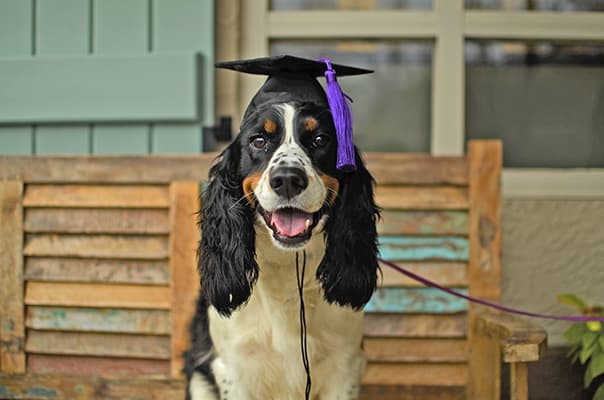Vital Pet Training Tips for a Well-Behaved and Confident Family pet
Efficient dog training is a basic element of fostering a confident and mannerly family pet. Establishing a consistent routine, using positive reinforcement methods, and prioritizing very early socialization are crucial components that contribute to a dog's overall habits and character.
Establish a Constant Routine
Establishing a consistent routine is critical for effective canine training. A well-structured routine provides dogs with a complacency and predictability, which can significantly boost their discovering process. By establishing certain times for training sessions, feeding, walks, and play, you create a structure within which your pet can thrive.

Additionally, a routine aids in addressing behavioral issues. When a dog knows when and where to expect numerous tasks, it reduces stress and anxiety and promotes a calm disposition. Normal workout and mental stimulation must additionally be included in the regular, as they are crucial for a pet dog's well-being.
Usage Positive Support
Positive support is a necessary component of efficient pet training, cultivating a strong bond between the trainer and the pet while motivating preferred habits. This training method includes satisfying your dog with treats, praise, or play right away after they do a desired action, such as coming or resting when called. The fundamental concept is that behaviors adhered to by positive results are likely to be repeated.
Rewards should be provided promptly to aid your dog make the connection in between the habits and the benefit. If you compensate your dog for resting, ensure you make use of the same spoken cue each time.
Additionally, differ the incentives to keep your pet dog engaged. Ultimately, positive reinforcement promotes a happy training experience, resulting in a mannerly dog and a more powerful partnership between the pet and owner.

Mingle Your Pet Dog Early
A pet dog's capacity to adapt to numerous atmospheres and situations frequently hinges on very early socialization. This essential developmental stage commonly happens in between three and fourteen weeks of age, during which puppies are especially responsive to brand-new experiences. By subjecting your pet to diverse people, family pets, sounds, and settings during this time around, you can aid foster a positive and well-adjusted adult.
Socialization assists avoid behavioral issues such as concern, aggressiveness, and excessive barking. When a pet dog is accustomed to different stimulations, it is much less likely to respond adversely out of concern or unpredictability. Engaging with various other canines in regulated setups, such as pup classes or playdates, can additionally teach essential interaction abilities and appropriate play habits.
Additionally, presenting your pet to different settings-- like parks, active streets, and pet-friendly stores-- can enhance its convenience and versatility in brand-new scenarios. Bear in mind, positive experiences during this developmental period are essential. Constantly ensure that these encounters are pleasurable and safe, and check your pet dog's responses to direct more interactions. Inevitably, investing time in very early socialization lays a strong foundation for a well-behaved and confident animal.
Teach Basic Commands
Building on the structure of early socialization, training fundamental commands is a vital facet of pet training that improves communication between you and your animal. Basic commands such as pop over here "rest," "stay," "come," and "down" not only promote etiquette but likewise guarantee your pet's safety in different scenarios.
To effectively educate these commands, start in a peaceful atmosphere complimentary from interruptions. Use positive reinforcement methods, such as deals with or praise, to reward your pet dog promptly after they execute the wanted behavior. Uniformity is vital; repeat regulates in a clear, solid voice and technique routinely to enhance understanding.
Start with simple commands, slowly raising intricacy as your pet dog comes to be extra proficient. When your canine reliably rests, you can introduce the "keep" command.
Address Behavioral Issues Promptly
Addressing behavior issues without delay is vital for keeping an unified partnership with your dog. Delaying treatment can result in the support of unfavorable actions, making them more challenging to fix gradually. Whether your canine displays hostility, too much barking, or splitting up anxiety, it is crucial to identify the source of these habits and resolve them promptly.
First, observe the context in which the habits takes place. Comprehending triggers will certainly enable you to develop a reliable training strategy. Consistency is crucial; make sure that all relative react to the habits consistently to avoid confusing your dog. Use favorable reinforcement techniques, rewarding your canine for preferred actions while rerouting unwanted ones.
Sometimes, professional help might be required. A licensed pet instructor or behaviorist can supply customized methods to resolve specific concerns. Keep in mind that perseverance and perseverance are crucial, as habits modification usually calls for time.
Eventually, by addressing behavioral problems immediately, you cultivate a positive setting that encourages your pet dog to flourish. This proactive method not only improves your canine's habits yet likewise enhances the bond between you and your pet dog.
Verdict
To conclude, executing a regular regimen, using positive reinforcement, and prioritizing early socialization are essential in establishing a mannerly and positive dog (Dog training). Showing standard commands via concentrated sessions cultivates reliable interaction in between proprietor and animal, while promptly attending to behavior problems protects against the escalation of troubles. Together, these techniques produce a harmonious setting that improves the stop puppy chasing cat bond in between pets and their owners, ultimately causing a happier, healthier canine companion
Developing a constant routine, utilizing positive reinforcement methods, and prioritizing very early socializing are essential components that contribute to a dog's total habits and personality.Favorable reinforcement is an important element of efficient pet training, cultivating a strong bond in between the instructor and the dog while encouraging desired habits. Incentives must be provided immediately to aid your pet make the link between the behavior and the benefit. Use positive support techniques, such as deals with or praise, to reward your pet immediately after they carry out the preferred actions. Utilize favorable reinforcement techniques, compensating your canine for desired behaviors jean donaldson dog training 101 while rerouting undesirable ones.